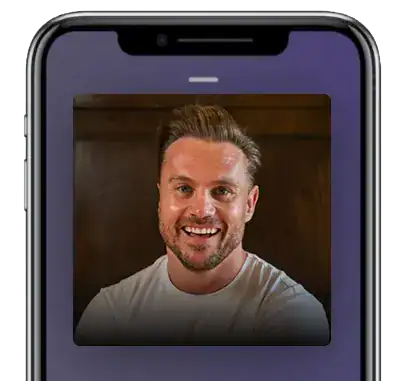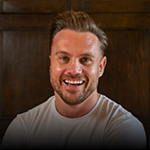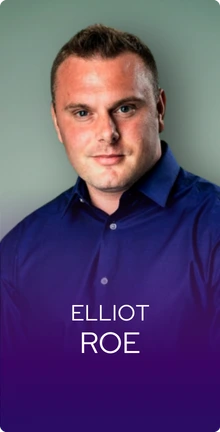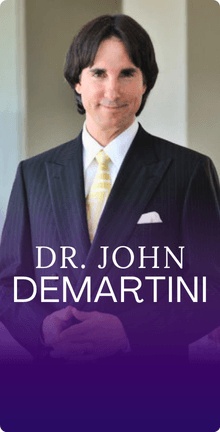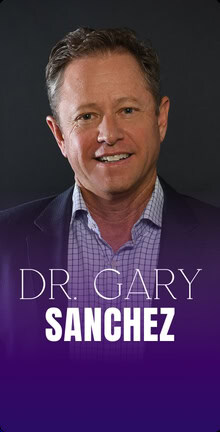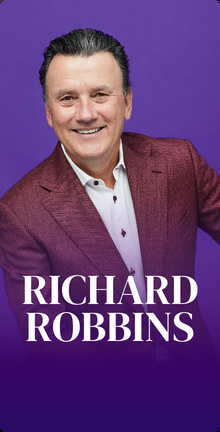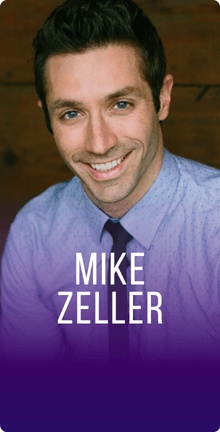In this Episode
- [02:16]Will Polston reflects on his podcasting journey, which began in 2018 and evolved with the launch of a new show in 2020.
- [04:37]Will opens up about pivotal life challenges, including a near-suicide attempt and a powerful breakthrough tied to money and family.
- [10:03]Will describes his shift from the financial services industry to personal development, sparked by reading The Secret by Rhonda Byrne.
- [16:02]Stephan recounts his own transformational moment attending a Tony Robbins event in 2009.
- [26:20]Stephan inquires how Will has managed to remain alcohol-free over the years.
- [31:22]Will explores his use of AI tools like ChatGPT and Replit, emphasizing how they enhance productivity and creativity.
- [42:11]Will introduces the concept of ikigai and explains how it helps his clients align with their life purpose.
- [47:13]Will elaborates on the idea of a personal North Star and how it serves as a compass for growth and decision-making.
- [55:33]Will wraps up by directing listeners to his website, where they can access his podcast, book, and other valuable resources.
Will, it’s so great to have you on the show.
Thank you for having me. I’m looking forward to the conversation.
So, you’re a longtime podcaster. How long have you been podcasting for, and how many episodes do you have under your belt?
The first podcast I ever started was in 2018—seven years ago now—and then we launched the current podcast, which we still run, in 2020. That’s another five years. So, I’d say in total, we’re probably approaching about 300 episodes.
What’s the highlight? One of the best, favorite episodes that just pops to mind.
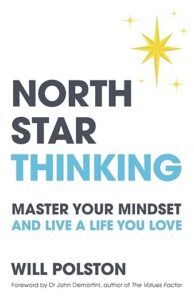
There have been a few, one of which was particularly interesting. My key interest at the time was with a guy called Matt Gallant, who owns a company called BIOptimizers. It was fascinating to discuss the supplement side of biohacking. That was really interesting. He was talking about superhumaning yourself, which was super cool. Another one that stands out, which is an odd one, was a woman called Dr. Lisa Turner, who had quite a unique sort of teenage years in that she was in love with a pedophile.
Her parents knew about it. She then basically lived in the house. We’ve called it a “house hostage,” but she then went through that experience. She’s a scientist by trade, I think, was a geoscientist, and then became really, really focused on spirituality. She connected, sort of, all the challenging times with spirituality, with the science of unpacking spirituality. It was absolutely fascinating to get her perspective on that. There’s a couple.
Wow. You hear these stories and you think, “Wow, how does somebody even live through that?” But then, you also hear this old adage that God doesn’t give you more than you can possibly handle. People who go through horrible, crazy challenges do get through it and say that it made them stronger and better. I had a really, really tough childhood. I remember my uncle, when I was probably in my early 20s, telling me that he couldn’t believe I made it through it alive and not in prison, like a drug addict or something. Looking back, that made me a better human, a better man, a better soul, but at the time, it was tragic and terrible and practically unbearable. Did you have any kind of trial by fire sort of moments, years or entire epochs in your life?
I do. There are situations where people say, “Life happened to me.” They were the victim. And you’re looking at, “Oh, my God, how did you ever survive going through that trauma?” Then, there are the ones that are by design. There’s an argument about whether it’s all by design at some subconscious level. But the one for me, I don’t. How much you’ve delved into the realms of Buddhism and talking about non-attachment. For me, I became obsessed with creating an outcome seven or eight years ago, and was very much in a masculine energy.
We find ourselves reflecting with hindsight, but we could have made better decisions if we’d given more foresight to those moments.
“If I make it happen, I can do this. I can do whatever it takes to get an outcome.” I push so hard that I push myself to the brink. I think that there’s a lot to be said for making stuff happen and getting out of your comfort zone, but then you can swing the pendulum the other way. I reached the point where, at one point, I just decided, “Right, this is enough. Enough is enough.” I’m causing too much pain to other people as a result of trying to do what I believe was the right thing, and my whole world was just feeling like it was going to end, to the point where I decided, “Right, I’m just going to end this. I’m causing too much pain.”
I remember having a very, very eerie walk to a river that was down the end of a road, and just said to myself, “Well, I’m gonna let fate decide. If the tide is in, then I’m gonna get in that river, and that’ll be the end of everything. If the tide is out, then that’s my sign,” you know, you say talking about God won’t give you anything you can’t handle. When I reached the end of the river and the tide was out, that’s the sign I needed to turn this around. It was all about money. I’ve got a really weird relationship with money.
I grew up with the belief that money and happiness went on a tangent, so I made as much money as I could. I did very well at that. I had some trials and tribulations along the way. I tried to do the right thing, to rectify that, and put myself in an even worse position, causing other people around me. I perceived that other people around me were causing them more challenges and pain. I just thought, “Whatever I’m trying to do here, I’m getting it wrong, and this isn’t working out.” That was, if I think back, probably the lowest moment, and I think it was self-inflicted. There’s a lot to reflect on about many things. We find ourselves reflecting with hindsight, but actually, we could have made better decisions if we’d given a bit more foresight to those moments.
Do you think that moment or that depth of despair that you were in was orchestrated from above, maybe by you, by your soul, by your higher self, by maybe a collaboration between you and God, or you and your spirit guides? Do you see that there’s method to the madness, or does it feel like that was an unfortunate, difficult learning that you backed into without really thinking about it?
I’m a huge advocate for using perspective to alter our views of certain events, certain situations, and to create equilibrium.
We keep getting the lesson until we learn it. I love the concept of the feather, the brick, and the bus. You get the feather, the feather tickles you. If you ignore the feather, you get the brick in the face. If you manage to dodge the brick in the face, you get hit by the bus. I was absolutely hit by the bus. Many people just keep repeating the same patterns over and over and over and over again. So much of that can be dealt with by perspective at the root cause. I’m a huge advocate for using perspective to alter our views of certain events, certain situations, and to create equilibrium.
Most people don’t do that. There’s situations that I’d had in my life, a lot of which I’ve gone on to clear now, but that I was emotionally charged by one way or another, which is a key sign, if you’re heavily emotionally charged by something, It’s a key sign something is going on that you’re not addressing. You’ve got a lopsided perspective. That was what then enabled me to start to really, really delve into the depths of why I operated the way that I did, and the reasons why I did what I did in life. Every single one of us has a completely unique set of values that is as unique as the fingerprint on the end of our fingers, and anything we value in life is perceived from, or is born from a perceived void.
For me, those voids are the perspectives of potentially a lopsided perspective that we had in that moment. We can go back into those moments, a bit like in therapy, you know, Gestalt therapy, you go back to the absolute root cause. You can undo all of the other situations that may arise by getting rid of that anchor. I think of it like imagining a boy floating in water, whether it’s in the sea or a river. If that’s anchored down, you get the illusion that the boy is moving, it’s going up, it’s going down, it’s going left, it’s going right with the tide, but it’s anchored down in the sea bed or the river bed, but if you let it loose at the river bed, which is where it’s actually anchored down, then it can truly freely move. But until you do that and you release that anchor, then you’re only going to be able to go up or down or left or right as far as the chain that you’re attached to will let you go.

When you switch to becoming a performance coach, from what you were doing prior to that, maybe you were just in school or something. I don’t know what the timeline looks like for you. But was there a moment where you realized that, “I need to coach myself, and then after I’ve rescued myself, I need to do it for others?” Or was there some sort of calling that you received in some other way? Did you see Tony Robbins’ infomercial, and you’re like, “I want to do that.” How did that come about?
Well, it’s funny how you mentioned Tony Robbins. The short version of the story is that I grew up with the belief that money equals happiness. I went on a tangent to make as much money as I could, as early as I could, and I did okay at that. How that happened was that my dad worked in London. He hated his job. Got up at five in the morning, got home at seven or eight o’clock at night. I could see and literally feel the stress and the frustration every time you walk through the door at the end of the day. Now, at the same time, I’ve got two very wealthy uncles.
One’s a billionaire, the other one’s a multi-millionaire. Dad always used to say they just got lucky. That was drilled into the heart. “They just got lucky. They just got lucky.” Now, even at a really young age, 7, 8, 9 years old, I remember thinking that just doesn’t seem right. Anyway, one day I came home from school, I was about 10 years old, and my dad had quit his job to set up a business with one of my uncles. Now, both my uncles are very charismatic. They’re like the people, if you’re at a party, everyone’s surrounding and they’re the life and soul.
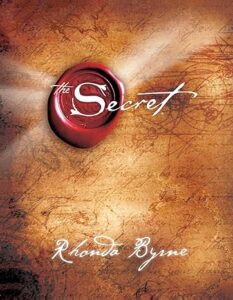
They’re full of great energy. I remember thinking, “Yes, this is it. Dad’s gonna be just like Uncle Mark and Uncle Steven.” Long story short, that business never got started, but my dad had already quit his job. I was about 10 years old at the time. I was one of four children, so there were six of us in total in the family, including my Mom. Then life changed as I knew it. My mom had to go out and work three different jobs to keep the roof over our heads, and Dad would sort of sleep in a separate room. My mom, on a certain shuttle day, wouldn’t leave the house, all the stereotypical stuff that you and I would associate with someone who would be feeling feelings of depression.
I just remember thinking, “Well, hold on a minute. Uncle Mark is a billionaire. He’s really happy. Uncle Steve is a multi-millionaire. He’s really happy. Dad, when he worked in London, okay, he was stressed, he was frustrated, but he’s a lot happier than he is now. He doesn’t leave the house.” So for me, it was obvious that money equaled happiness. I became that kid at school, buying and selling sweets, ducking and diving, and selling stuff off eBay, then buying and selling it all again. I became sort of pretty obsessed with money and entrepreneurship and whatnot. I then eventually got involved with financial services, and I was running a vision of a stock brokerage. That was where I first came across personal development.
What I was doing without realizing it at the time was that I would go and find the people in the office who were doing the best, and I would just emulate everything they were doing, in terms of NLP. We’d call it modeling. I was modeling what they were doing and getting great results. And then one day, one of the guys was reading this book called The Secret by Rhonda Byrne, which is a personal development book. It’s quite famously known for really commercializing the law of attraction. I read this book, and I remember reading it and thinking, “I’ve been doing loads of this stuff with my whole life, and never realized it was a thing.”
In life, we keep getting the lesson until we learn it. Share on XWhen I was a kid, I would buy petrol scooters and little motorbikes. I’d do all the things. I’d visualize it. I’d see myself riding around on it, and within a few months, I’d have it. I remember thinking, “Wow, I didn’t realize this was the thing.” That’s got me. It was my gateway to personal development. Lots of people, I find that the first personal development book they ever read is the one that gives them the biggest leap of consciousness. They sort of jumped to this new level of awareness. I just became obsessed. Then, the more personal development I did, the more money I made. That went on for some time. Then, one of my old bosses at the time said, “Well, there’s this guy called Tony Robbins coming to town.”
I know Tony. I’ve watched loads of his videos and stuff. “Do you want to come to one of his events?” I said, “Yeah, absolutely.” I went to (UPW) Unleash the Power Within in May 2013, and that’s where I had what I call my “lightning moment.” And bam, it just hit me. On day two, he shared the Thanksgiving story, a famous story. You can go on YouTube. I just cried my eyes out for about fifteen minutes, because in that moment, I realized that my real driver, which I believed was money, equaled happiness, was not about money. It was never about money.
What it was really about was my dad, how he hadn’t achieved certain things he was capable of, the impact that had on him, my mom, me, my family, and a whole host of other people. I vowed in that moment, I don’t want anyone else to go through the suffering that he went through, and we went through. From that day on, I’ve just been obsessed with anything to do with human awareness, human potential, human behavior, and that’s kind of where it’s all stemmed from. It’s funny; you mentioned Tony because you were bang on, you were right on the mark.
Yeah, I have my own UPW story to change my life. I’ll share it briefly in a moment. But I’m curious where things ended up with your dad.
He then ended up setting up a small business with a family friend, doing something that gave him less stress, and it was something that he continued to move on with. Now he’s probably happier than he’s ever been. I still think that from his perspective, there’s certain things he would have done if he’d have had the knowledge and the awareness in terms of wanting to do those things, but ultimately, what he wanted to do, which was not have the stress, be able to provide for the family, he was able to do. So, yeah, things did improve, and he got himself into a better place.
How’s your relationship with him?
The more personal development I did, the more money I made.
I would say the relationship is now actually better than it has ever been. There was a period in my teenage years when I resented my dad to the point where I appreciate that most teenagers, perhaps, have a bit of a funny relationship with their parents. But I vaguely remember that at one point, I think it was about eighteen months, we were living under the same roof, but we pretty much didn’t talk. It was a rocky relationship. But now, it’s definitely better than it’s ever been. Are you familiar with Dr. John Demartini?
Several times on the show.
John’s a mentor of mine, and I trained in his methodology. I became a facilitator of The Demartini Method. When I was working on one of his breakthrough experiences with my dad, I had a breakthrough in relation to one of his levels of genius, specifically his knowledge. He’s the kind of person my dad knows is unbelievable in a number of different ways, particularly in relation to physics, quantum physics, and mathematics. It’s just a ridiculous level, and that was one of the gifts I was given by my dad. But, I’ve just applied it in a different area, which is in the area of personal development, to be able to help people in that area, which was, again, a big perspective changer.
Wow. That’s cool. Let me share briefly my little UPW story—Unleash the Power Within by Tony Robbins. It was 2009, and I was in the midst of a divorce, an 18-year marriage. I did not initiate the divorce. It was my wife at the time. I was surprised, not in a good way. You can connect the dots only looking backwards, and now it makes total sense. It’s beautiful, it’s amazing, and I’m in the relationship of my dreams. It’s all perfect. But at the time, it was really rough, and several different friends told me I need to go to this Tony Robbins event in Chicago.
I was living in Madison, Wisconsin, so it wasn’t too far away. Because three different friends told me within a short span of time, within a few weeks, I figured, “Well, I guess there’s probably something to this. I’d better go.” I had no idea I was supposed to walk on hot coals barefoot or any of that. I had no idea what I was getting myself into, but I won’t go into the details. But the end result was that, within a couple of weeks after UPW, I signed up and got a LASIK surgery so I didn’t have to wear glasses anymore. Two months later, I got a hair transplant and changed my diet.
Most people don't realize they're anchored down. You get the illusion that you're moving, but until you release that anchor at the root cause, you can only go as far as the chain will let you go. Share on XI started working out. My mindset was much better. I was really a different man. Unrecognizable. If you look at my GetYourselfOptimized.com podcast website on the ‘About’ page, there’s a before-and-after photo on my timeline from 2010, which is markedly different and not recognizable. I’d go to conferences to speak, and people who knew me from the previous version didn’t recognize me. I’d hang around in a group of people, and nobody would know it was me. It was pretty fun. That was just the beginning of the journey, though, because, of course, changing your mindset and changing your physical appearance are really surface-level changes; changing your spirit and becoming more of who you really are is a whole other level.
That happened a few years later at Tony Robbins’ Platinum Partnerships event in India, where I got touched on the head, given an oneness blessing, a Deeksha, and everything was technicolor, like a cartoon. I don’t know what an LSD trip is like, but it was, I think, like that. I could see the energy in the trees and the plants, and it was so vibrant and vital. I felt so connected to God. That whole time, up until the age of 42, up until that moment, I was agnostic, so it switched a light on, and suddenly all the miracles started pouring into my life, and it was incredible. I have a completely different life now, and that was in 2012, so it was definitely a positive conspiracy between Tony Robbins and the creator, between Tony and God, to get me on track.
I love that. He’s had quite the impact, hasn’t he?
Yeah, but we’re all human, you know? Everyone can point to stories that are not favorable towards any public figure, because they get scrutinized to the umpteenth degree. You know, if you’re not a creator, you’re probably a critic, and the critics love to nitpick about whoever it is, Tony Robbins, or any of the personal development gurus, Rhonda Byrne, or anybody, and it’s like that doesn’t serve anybody. To do that, you just have to focus on being better than who you were yesterday.

Tony, to me, was a catalyst and a brilliant one, but so has Dr. Demartini been for me. I’ve attended many of his seminars, too. I’ve attended lots of masterminds. We know each other through the Genius Network. I’ve been a member of Genius Network for seven years, and I’ve signed up for the next three, so I’m definitely committed for at least a decade. I have no plans not to be in it. It’s like these events, masterminds, gurus, or whatever you want to call them, I believe they’re all put into our life on purpose, not by accident. We don’t just seek out what we need.
The movie is written for us, and maybe co-authored by us, the movie script. So, you know, all the people who have been life-changing for us, both positive and negative, are part of the rigged game—the part of the system that is here for our highest good and the most benevolent outcome. Do you have a spiritual awakening story or something where you got touched on the head by a monk, or, you know, as if you almost died, or whatever, like something that is a massive perspective shift or identity shift that happened very quickly?
The one I refer to as the “lightning moment” was a big one for me in May 2013, which was the moment there.
That was the Thanksgiving story that Tony shares about him being a kid, and then they’re dirt poor, and somebody comes with a Thanksgiving turkey and stuff for charity to Tony’s family, that’s the story, right? We don’t want to spoil it because we want our listeners to watch the video or listen to Tony tell the story. But what did you do or say or think, or what happened from that story that suddenly switched the light on or gave you that lightning bolt?
The ‘when then’ syndrome happens when we give ourselves excuses as to reasons why we should do things at certain times, and that was my win.
There’s what happened directly after, and then there’s what happened two years later. The thing that happened immediately after, and if anyone has been to UPW or is not used to you. UPW, they kind of brace you, like “you’re all charged up.” You’ve spent four days, best part of twelve hours a day, getting charged up, high on dopamine, and this stuff that people are keen to go out in the world, they kind of brace. You’re going to go back to your family and your friends who haven’t had this experience. You were here, and they were here, like at the same level. When you’re now here, there’s going to be a disconnect.
I remember going home and basically sitting my family down and saying, “That’s it. I’ve decided what I’m gonna do with the rest of my life.” I’m gonna do what I said at the time was, “I’m gonna become the world’s best life coach.” Now what’s interesting is that that’s what I said, but it’s not what I meant. What I meant by that is that I want to have a massive impact. That was what I said at the time. I sat my family down, and that night, I registered a company. The next day, I went to the bank and set up a company bank account, and I was charged up. I was so ready for this. And then I stopped.
Then I said, “Right, so now I’ll carry on when I’m successful.” I call it the ‘when then’ syndrome. “When I do this, then I’ll be okay. When I do that, then this will happen.” We give ourselves these excuses as to reasons why we should do things at certain times, and that was my win. I did leave London. I set up a renewable energy business. We were going all in on that. We grew really fast. We had 85 staff within 18 months, growing, growing, growing, reinvesting all the profits back into the business, and then 18 months into that business.
Here in the UK, the government decided to pull what was called the ‘feed-in’ tariff, which was a form of financial incentive to get people to have solar panels on their homes. You made it a lot easier to sell, and then almost overnight, it killed the business when they pulled that. And I went on holiday with an ex-girlfriend of mine at the time. Talking about the big grand design, you know, the grand orderly design of the universe. What actually happened was I was a big drinker, and I stopped drinking seven years ago, but we’re talking ten years ago now. The business collapsed, and I decided to go on holiday. My girlfriend at the time was a dental nurse, and she said, “Get your teeth cleaned by the hygienist.”
Her friend was the hygienist. She clipped my gum. It got infected days before we were going on this all-inclusive holiday to Mexico, to Cancun, specifically. It got infected two days before the holidays. “I’m really sorry, I’ve got to give you these antibiotics for it to go.” One issue with them is that you can’t drink alcohol on these antibiotics. Now, anybody who knows about Cancun when you’re in your mid-20s knows it’s a bit of a party place. The idea of going there and not drinking alcohol was a bit of a shame for me. I think this is a real negative. Anyway, one night we’re out there together, we go to this nightclub called Coco Bongo, which is like this mad, crazy nightclub with midgets swinging from the ceiling, and there’s like a show going on, and my ex was throwing back tequila like it was going out of fashion.
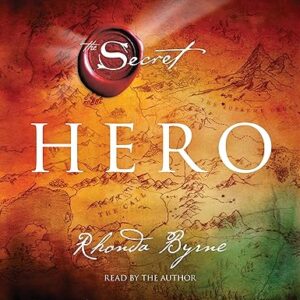
I ended up carrying her home at five o’clock in the morning, putting her to bed, waking up the next morning, she’s super hung over, got her head down the toilet, throwing up, and I said, “Look, there’s no way I’m staying in with you. My holiday’s been ruined already by not drinking alcohol. I’m going to the pool.” I go to the pool with a book in my hand called Hero, also by Rhonda Byrne, who ironically was the same author of the book The Secret, the first personal development book I ever read. I’m sitting on the sun lounge. I have my sunglasses on, reading this book on my own.
It gets to a part of the book where it speaks about a guy called Mastin Kipp. Now, Mastin KIPP, I don’t know if he still has; he had a website called Daily Love, and in the story, it was talking about how he used to post most facial quotes on Twitter every day, and one day he got retweeted by Kim Kardashian. He went from 1,000 followers to 10,000 followers overnight, and I just started crying my eyes out. It was one of those moments where it felt like the clouds had parted, the sun beamed down, and I just felt this. It wasn’t sort of the different colors, like you said, but it was like this burst of energy, I can’t even describe it, and it just made me realize, then and there, you don’t need to be successful before you start on this journey.
You could literally start by posting quotes on social media. I literally came home from that holiday. I posted a quote on social media, on Facebook, specifically. A week after that, I thought, “Will, you id**t. Some people don’t go on social media in the morning. You should post one in the afternoon as well.” I did one in the morning, one in the afternoon. A week after that, I set up a basic website. A week after that, I wrote my first blog. Three months after that, out of 10,000 strong social media following, and it snowballed from there.
That was part two of the journey. It comes back to that whole life doesn’t happen to you, it happens for you. If I hadn’t had my gum clipped, I would have been drinking tequila till five in the morning. I, without doubt, wouldn’t be reading a personal development book. Hungover, I would have been laid up in bed, not going out. That was sort of another one of those moments where it just felt like everything was unfolding the way it was supposed to.
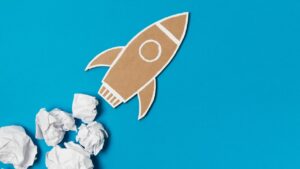
How did you stay a non-drinker?
This would have been 2015. I carried on drinking. I was drinking for a few more years. I’ve grown up playing rugby since I was four, and ice hockey. I was a big drinking lad, sort of culture. I just got sick and tired of having hangovers. It was so bad, and I would get blackout drunk. On my 29th birthday, I decided that I wanted to take a year off. I’m quite determined; if I set my mind to a challenge, I’ll do it.
The original goal was to have a year off from alcohol. On my 29th birthday, I had a particular goal I wanted to achieve by the time I was 30, and I said, “I’m going to do it.” So I just made that decision then and there. I ended up going about 18 months, and I had a few drinks at the 18-month point, and just realized that having alcohol in my life adds nothing to it. It’s just a subtractor. That would have been five and a half years ago from that moment, then.
In total, it’s been seven years, but there were a few nights out that I had about 18 months in, and it just went from being a challenge to becoming a choice. It became my choice not to drink alcohol. There was far more downsides associated with drinking alcohol, how I felt, what I did, the money I wasted, the experiences I couldn’t remember, versus the upside of feeling fresh, feeling clear headed, being able to get up early in the morning, do things I wanted to do, get the most out of the week or the weekend, and I’ve still to this day, never said that I’m never gonna drink again, but I just can’t see any upside as to why I would do it. It’s like saying to someone, “Well, why don’t you put dog poo in your sandwich and eat it?” There’s no upside to doing something like that. You just have a terrible experience by doing it, and that’s what it’s for me.
But yet, there’s an addictive element to alcohol and to drugs, so you have to overcome your body’s craving for it. Was there something that helped you, maybe a habit, or some identity shift, or realization?
My identity shift was ‘I am,’ the two most powerful words in the English language.
The identity shift was ‘I am,’ so the two most powerful words in the English language are ‘I am,’ right? I am not drinking alcohol for a year. That was the set I set—the challenge I put. Set out my stall. I suppose you call it ‘public accountability’ that made the decision. There wasn’t anything that I did to certainly not consciously anything that I did, because I wasn’t someone who drank alcohol every day, but I would be someone who, every week or every couple of weeks, would binge drink. I would get blackout drunk on a Friday night or Saturday night. That was the case there.
My personal belief is that the majority of substances people use to alter their state—let’s call it that—whether it’s alcohol or doing something to alter their state, is linked to someone trying to avoid something, by being able to create something new, and that, for me, is the difference. A lot of people struggle to stop something because they just do the stop part, and they don’t replace it with something better. The moment you replace it with something better, you’ve then got two forces working to your advantage.
For me, for example, getting up and doing stuff really early in the morning on a Sunday morning or Saturday morning, I was looking forward to that. It gave me the reason not just to think that I was missing out on what was going on the night before, so that there were probably two quite simple things that I did. Something that I’ve personally struggled with in more recent times, though, is sugar. I’ve really struggled with sugar. Now that’s something I’ve attempted, making certain replacements with and swapping out sugar for protein yogurts and various other things. That’s another thing that I’m working through at the moment. But sugar, I find, is a lot harder to kick the habit of because it is just everywhere, and that’s something I’m still working on right now.
Me, too. I actually went without desserts for two and a half years, and then I fell off that wagon. Although I don’t have a lot of desserts, I still have yogurt with sugar in it. I would like to return to a point where it’s very clear to me that I only have desserts on holidays, such as birthdays and special occasions. It’s not clear-cut for me now; I have this kind of slippery slope that I can go down, and I need to be more disciplined about it.
What would be the kind of the purpose for Will in this new age of AI, because we’re having to shift not just identity but professions and become like AI first in our mindset and like there’s so much that has to happen for each of us next year or two or we are completely behind with probably no chance of getting caught up. Your purpose as a performance coach, an author, and somebody who inspires people through online channels like social media and so forth—how does that identity and that purpose shift in the age of AI?
You can have things that work for you and use them as a tool, or you can have something that works against you.
Like lots of things in life, you can have things that are working for you and you use them as a tool, or you can have something and have it work against you. I think that for us as a company, and for me personally, it’s just an amazing accelerator. Once upon a time, playing on the Nintendo computer game, and you’d play Mario Kart, and you’d drive around in the Mario Kart, and then every now and then, you’d go over these like little mini treadmills with arrows, and the car would speed right up, and you get boosted right ahead. That’s what I’m seeing as AI being right now. I mean, I’ve been using ChatGPT pretty much since it came out. In more recent times, I’ve been playing around with AI agents.
I was using Replit for the first time the other day to create an app. If people aren’t aware of it, you type into the website what you want, and it will build you an app in a matter of minutes that would have cost you tens of thousands of dollars and months of time working with developers to be able to get it done for free. What it can build for free is just unbelievable. I see it as a huge accelerator. I also think that for many people, it’s a matter of getting their minds around using it as a tool. So, lots of people in recent times have used Siri on their phone or Alexa, which mine is probably going to go off in a second now, and it hasn’t.
They have not really done anything; it hasn’t been great. But in the very recent next couple of years, we’ll be using these things to help us, because they’ll know us better than we know ourselves, and that’s something I’m really excited about. We’re using it within the business. I’m getting the team using it in as many different ways as they possibly can. I just see it as a huge, huge accelerator and just absorbing what I can and applying it. But I also think I’ll add the carrier here. There are a lot of people that I’m speaking to right now. You’re in a similar situation, whereby we’ve spent time discussing Genius Network, which is something we’re both part of.
We surround ourselves with the people who are at the forefront and really driving with this and really, really pushing on with it. It’s very, very easy to think that you’re being left behind, but the majority of the population still haven’t even used a basic large language model. That’s the bit that I’m seeing for a lot of people. Some people are going, “Oh my God, I’ve got to be diving full in with this straight away. If I don’t, I’m going to get left behind.” I think it’s wise to be considering it, using it, seeing the opportunity, realizing that it’s not going anywhere, and starting to identify how we can fold it into our life in the same way that 20 odd years ago, people did with the internet that it’s just going to happen at a far faster pace.
Yeah, and I think it’s going to be the most disruptive thing that we’ll have ever seen in our lifetime, much more so than COVID. Half of the planet will be unemployed in just a couple of years, two or three years from now.
I’ve got a belief around this. If you look at the trends in decades gone by, and you look at the various different revolutions, like the Industrial Revolution, and what happened there, particularly here in the UK, you had the sort of the aristocrats, the land owners, and they would sit in their big manor houses all day. The labor staff would be out working the land, and they would just be having a very social life, the societies of the UK, and I can see us moving.
Your lowest lows have a direct correlation to your highest highs. It's those moments of struggle that reveal what you value most. Share on XThis is why I come back to my whole concept around ‘north star’ thinking, which, if we can get ourselves to be in in a position, on a global scale, where people have the ability to use technology and be able to generate revenue doing something they love by using their technology and not needing to work, then it’s going to create so much free time that people can then focus on their passions, the things that really, really inspire them, and that, I think, is a really exciting opportunity.
One of the ways that I help people get clear on what it is they would really love to be doing is imagine you had all the money in the world, or you had all the money you would need, and you knew that that was going to hit your bank account every single day in the same way that you, for most people, get the twenty-four hours in a day reset every single day, if that happened.
You knew that you had that money coming in, what would you do with your day? Well, people would want to do something that’s fulfilling. They’re not gonna go, “Well, I just want to go and sit on the beach all day,” or they’re gonna want to do something that fulfills them, “I want to do something that’s meaningful and inspires them and can make a difference.” Being able to use technology to help make that happen, that I think becomes a really, really, really exciting time, because then they can have their platoon of AI agents working on opportunities that are generating revenue, it creates freedom for them to be able to do things that they want to be able to do, and at the same time, they can apply their time, energy and effort to do things that they would want to do, not things that they need to do. That, I think, becomes a very exciting future.
Yes, I recently learned about a process called the Odyssey plan, which was developed at Stanford. It involves going through three different scenarios. One of those scenarios, the third scenario, is that you don’t have any limitations with money. You have all the money that you could possibly need. Money is never a consideration or an issue. The second piece that I think is just as important is that you don’t care what people think. You don’t care what they think of you. You don’t care what their opinions are.
That’s their business if they don’t like you, or if you don’t, you set that aside, and then anything and everything becomes possible. It’s like you’re now Neo in The Matrix, and you’re able to bend spoons and bend time, and do seemingly incredible things, but most people don’t go through that process of dreaming, believing, and then creating. So the Odyssey plan has three scenarios. One is just you’re on your current trajectory, and you keep doing what you’ve been doing, and you grow naturally, because we’re all either growing or dying.
Scenario two is where you take a big risk, a leap of faith on an area, such as where you live, or what kind of business you do, or a career change, pivot your business, whatever. But scenario three is where the real magic happens. So, take a 20-minute exercise to sit down and plan out or envision these three different scenarios for five years from now, where you are, and what life is like. It’s very powerful and sounds like what you were describing about imagining that money is not a concern anymore.
Yeah, very much. And you’re right. I think financial restriction and people fearing what people think of them are absolutely two of the blockers for a lot of people. I think as human beings, naturally, we do instinctively want to progress and develop and evolve and become more enlightened and grow as a species. I think that, for me, is something that’s a given, and when you remove the restrictions, then that just happens, even more so than to bring Tony up again, talks about the six human needs, the need for certainty, the need for variety, the need for love and connection, the need for significance, is the four human needs.
Then there are the two spiritual needs: growth and contribution. You can get your first four needs met by focusing on growth and contribution. If people are using AI to contribute, but also grow themselves in all the different areas of life—personally, professionally, financially, mentally, emotionally, spiritually, and physically, I think it can do some real good. The key is that people get trained. We’re seeing some stuff coming out of the UAE and Middle East and America right now in terms of what they’re trying to do with schools, and get children introduced to being able to use AI, because they’re going to need to the schooling system is hundreds of years old. It’s not built for the future that we’re moving into.
I think that becomes very, very interesting, and it’s going to enable people to optimize themselves in a way that sets them up for a future and doesn’t set them up for failure. I think it’s one of the most exciting times ever to be alive. If you can, or anyone who has listened to this, can combine what they would do, like you say, if they didn’t have any money, if they didn’t know what, if they didn’t worry about what people were going to think, people will have some idea, or at the very least, they’ll know what they definitely don’t want to be doing.
My idea of having a North Star is having a mission in life that’s so big. It’s the equivalent of trying to empty the sea with a spoon.
Some people say to me, “Will, I want to create a different future for myself?” And I go, “Okay, great. So what do you want?” They go, “Well, I don’t know what I want.” I always challenge that. But even if we start by knowing what they don’t want, that can help create clarity on what you do want, and saying, “Well, I don’t want this, and I don’t want that, and I don’t want that.” We start looking at the polar opposite of that. I think of it as the old children’s game called a ‘shape sorter.’ It’s got triangle, circle, and square holes in it.
You put the triangle peg in the triangle hole. Well, once we’ve started to mold and shape what it could look like. It’s like trying just to put the peg in the hole. Does it fit? And before we know it, we can start shaping a future that inspires people, energizes them, and is a mission they’re willing to work towards for the rest of their lives. That, for me, is the switch. The old way of operating was that they would learn something, and then they would yearn for something: learn and yearn.
Traditionally, you would go to school, get educated, work, and then retire at 65. However, I think the idea of retiring is crazy. Why would you want to retire if you’re doing something you love, that inspires you, that fills you with enthusiasm? If you can fold all of that into a life that you don’t want to retire from, then I believe you’re going to have a far more fulfilling life and live a longer life as well.
Yeah, so you have a process for a person or like our listener, identifying what their North Star is, and building the habits and the tools and the procedures and so forth that will get them to that North Star and the attitude and all that. Can you walk us through a little bit of it?
Yeah, for sure. It begins with the idea of detaching from the outcome. There’s a famous story you’ve probably heard of. It involves a baby born in December a couple of thousand years ago, and there were three men, supposedly wise, all carrying a presence. You might know the story. They were following the North Star. But in every version of the story that I’ve ever heard, they never went to the North Star. It just acted as their guiding light. My idea of having a North Star is having a mission in life that’s so big. It’s the equivalent of trying to empty the sea with a spoon. You’re never going to do it. You’re never going to get there.
Values are the things you do that give your life meaning.
Now, it enables you to focus on something that you will pursue for the longest period. Yes, you can have milestones along the way. Absolutely, that’s fine, but it’s something that every day you’re waking up and you’re wanting to do. Once we break down how we get there, there are a few different ways in which I help people get clear on it. One way is to use a Japanese concept called ikigai. Now, we don’t have a direct translation for it in English, but it means a reason for being. There are four questions, and you can imagine a Venn diagram. You’ve got four circles that all overlap in the middle.
That’s the ikigai. But the four questions, or the four circles, are: What are you good at? What do you love? What do you love to do? Or what do you love to think about or spend your time doing? What does the world need? So what’s a problem that needs to be solved? What can you be paid for? The cross-section of those four answers provides an understanding. That’s one of the ways of doing it. Another way to do it is by identifying your core values. I define values as the things that you do that give your life meaning. The best process I’ve come across, which we’ve touched on already, is Dr. John Demartini’s Value Determination process.
But a quick way of understanding that is using an acronym called STEM. So if you want to get an understanding of someone’s values or your own values, look at your space. Look what’s around you. Now, if you were to come to my office right now, you would have to look around the space. I’ve achieved certain certificates and accomplishments in specific areas. You look at my books. All of my books are around personal development or entrepreneurship, so you get an understanding of me in that respect. Space is an indicator of time. What do people spend their time doing, but more importantly, what do they spend their time doing spontaneously?
What are they going to do spontaneously, and focus their time and effort on? It’s one of those things, if you’re doing it for yourself, where you can feel yourself just losing all concept of time because you’re so immersed in it. The third one is energy. What energizes you when you’re doing that thing spontaneously? Let’s say, what does it energize you? It fires you up. It fills you with enthusiasm. Also, what do you spend your money on? That disposable income is a good indication of what you value. Yes, you’re paying your mortgage, or you’re paying for food. But aside from that, what are the other things you’re spending your money on?
Looking at your means values, one of the other questions is, if you had all of the money that you would ever possibly need, what would you spend your time doing? That would also give you an indication. And the final one is by doing a reflection process, you said earlier, and I know it’s a famous Steve Jobs quote, “You can’t connect the dots looking forward. You can only connect the dots looking backwards.” So it’s actually creating a graph of your life. You’ve got sort of a Y-axis and X-axis. We have both heightened emotional moments and low emotional moments. You imagine plus ten down to the middle zero, and then down to minus ten, and then from your earliest memory until now.
You can’t connect the dots looking forward. You can only connect the dots looking backwards. – Steve Jobs
You just plot the journey. What have been your highest highs and your lowest lows throughout your early years, your teens, your 20s, and your 30s? Up until however old you are, you start making the connections. What you’ll typically see is that your lowest lows have a direct correlation to your highest highs. And it’s those lowest lows, those moments of struggle and challenge, those moments where you felt that something was missing in your life, which will give an indication of what you value most as well. There are a few different ways of being able to do it, and by going through those different exercises, you’ll see patterns that emerge, and before you know it, you’ll be able to identify what that is.
For some context, mine is about empowering people to transform excuses into results and live a life they love. I do that by helping people unlock their potential, master their performance and unlock their purpose. These are the things that I’m absolutely obsessed with. If I look back, I can see that these themes and trends emerged across all the various areas. What it linked back to was the moment, which was the lowest emotional moment for me, around 10 years old, that we started the podcast with, in relation to the situation with my dad, and that became the biggest driver.
What happens then is we become inspired. We’re operating from inspiration. It’s coming from within, rather than relying on external motivation. That is where I think the real juice of life exists: tapping into that. I think of it like this: when people used to tap for oil, they would tap into the oil, and they would hit the oil when they sat. You see it on YouTube or wherever, where the oil comes, starts spinning up, and eventually, the oil is going to run out. Whereas, if we can tap into a renewable energy source, which is our own energy that just keeps going and going, I think some incredible experiences can have a significant impact as a result of channeling that energy.
Yeah, and it’s not really your energy, it’s the universal energy. You’re tapping into the law of attraction, the law of gratitude and infinite intelligence, and it’s just limitless, and it’s incredible, and it’s going with the flow. It’s being carried down the river instead of trying to swim against the current.
You’ve got it absolutely.
Now, that statement you gave, I don’t know if it’s a mission statement or a vision statement about what you do and how you show up in the world, you shared a minute or two ago that was really tight, sounded like it was well rehearsed, that it’s in your muscle memory. Now, is it a mission statement? Is it a vision statement? Is it something else? What do you call that?
We’re operating from inspiration. It’s coming from within, rather than relying on external motivation.
I call it my North Star, and what’s the difference? I think of a North Star if we were going to get, I suppose, really nuanced. It is not my definition of a North Star; it is a life mission. It’s not your business mission. You know, think of most people, Stephan. If you were to ask them if they’re going to create a sizable business, they have a clear vision for the business. They have a clear mission for the business. They are clear on the company values. If they didn’t have that very key fundamental structure. Once you reach a certain size in business, it would be absolute chaos. Nobody would understand what’s going on.
No one knows what to do. There’s no alignment. Now, once you have the vision, mission, and values, then yes, you’re going to create your ten-year plan, five-year plan, and three-year plan. You know, if you’re into EOS, then you’re going to be working on your three-year vision, your one-year goals, and your quarterly objectives. You can be doing all of those things. But I think that most business owners and entrepreneurs have that for their business, but they haven’t applied it to their lives. We can get really clear on your life vision. What do we want, a vision of your life to look at, key points, you know? There are certain goals of mine that I’ve set, which I want to achieve in five years and ten years, and I want to have those experiences. There’s a clear mission that runs throughout, which serves as the North Star.
I’m clear on my values, which help me dictate where I go and the decisions that I make day to day. It makes life, I believe, a lot more congruent and a lot more aligned by having that so long. We didn’t answer your question, but it’s having the life mission to focus on and devote to. Look, can it change? I get asked this question a lot. The short answer is yes. You can have certain events in life that alter the trajectory of where you’re going and what you’re doing. We’ve all had these ‘sliding door’ moments in life, where if one thing hadn’t happened, then another wouldn’t have happened. However, the key is to take action and work towards it, and to do something in one way or another. Of course, that can be sped up by having great coaches, mentors, and advisors to support you and hold you accountable, because we all have blind spots, and that can accelerate the journey, for sure.
Awesome. I know we’re getting close to time here. By the way, I want to suggest to our listeners or viewers that they go through Dr. Demartini’s values hierarchy, such as the Value Determination process. It’s 20 to 30 minutes. It’s completely free. It’s on drdemartini.com/values. The thing I wanted to end our episode on was something you shared with me about a personal transformation that happened thanks to a friend of Joe Polish, founder of Genius Network, and that’s Steve Ozanich, who is also a past guest on my podcast and an amazing human. I would love it if you’re open to sharing the story of how Steve totally transformed your life.
I’m going to start by thanking you, because it’s your fault, and maybe we can also blame Joe, and then we can look at all the different ripples that have happened as a result. But here’s what actually happened. I’m obsessed with anything to do with mindset, and as I’ve realized over the years, as I peel back the layers of mindset, it’s opened me up to new and different worlds: worlds of science, philosophy, and spirituality. I’m constantly peeling back layers. However, around 2018, I was first introduced to the concept of metaphysical anatomy, which suggests that the root cause of illness and disease is often related to emotions. Dr. John Demartini is one of the world’s leading experts on the mind-body connection.
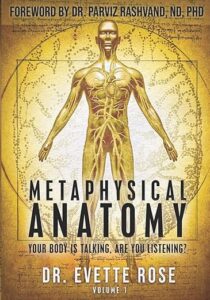
A friend of mine, Evette Rose, wrote a book called Metaphysical Anatomy, which is just incredible. There have been other great people who have done some great work. So I’ve been aware of this, and I’ve kind of had these kinds of experiences, and there had been a situation, and I’m gonna share something I haven’t actually shared with you, Stephan, which is in relation to my ear. I’m a third deaf in my right ear, and you might be able to see this if you’re watching this on YouTube. But if you look at me dead straight on, you can see one of my ears sticks out, and one of my ears you can’t see.
Actually, if you looked at me straight on right now, Stephan, you’d see that you can see the AirPod, but you can’t actually see my ear on the right-hand side. Long story short, when I was about just coming up to three years old, I started having ear issues. I kept getting ear infections and whatever, through various different stages of grommets, and I ended up having multiple ear operations. I’ve had about a dozen ear operations. I’ve had to the point where I had a cyst in my inner ear that was absorbing the little bones in your inner ear, and I had my whole ear basically cut off flat forward, and rebuilt my ear. Anyway, that’s why I’m a third deaf in my right ear.
What really blew my mind when I first came up with the idea of this work was my friend, Evette Rose, and we were talking about it. Just in passing conversation, I said about it, and she said, “Yeah, well, a cyst in the ear is due to household arguing about money.” I was just in shock. It was like, “Oh my god, wow, that’s because that would have been exactly what was going on with my parents at the time.” They just found out that my mom was pregnant with my brother and sister. In the household argument on the right-hand side, my dad didn’t want to hear my dad shouting and whatever else, so I unconsciously blocked my ear to not hear it.
The idea of that, some people go, “Well, that’s just a coincidence.” I don’t believe in coincidences. There’s only synchronicities. And that was when I was really bought into this, and she just made it a four, making it a throwaway comment. She didn’t even know anything about my background, not a thing. She just reeled it off anyway. So, fast-forward a few years, and I’m learning more about this kind of thing. This guy is Steve Ozanich.
His name came up probably three or four times. Joe had mentioned him. Spoke about him highly. There was a man named Daniel Brown who was also a member of the Genius Network. He spoke about him quite highly. Then there was a particular genius meeting, and I actually want to say it was this time last year. So, in May 2024, were you at Genius in person, or perhaps in April?
Yes, I think it’s around April or May.
It might have been April or May. You were talking about it, and you mentioned how transformational it has been for you and the changes it has brought about. I thought I’d heard about this enough times, now I’m just booking it. Literally, while she was still speaking about him, I went on his website and booked a session. It was you who tipped me over the edge. You were saying that you were trying to get him out into the world more. I booked this session in. What had been happening is I’d had an issue with my shoulder and a problem with my hip for about four years.
I just put it down to playing years of rugby and years of ice hockey, but it got to the point where I would stand up sometimes, and the pain was so strong that it would make me sit back down. I couldn’t move my arm. I could only move it up to here, and it was a real issue. I had this one session, and I remember the only time I could get it booked was 8 PM on a Friday night, because of the time difference being here in the UK, I did the session, which I think I ended up doing in the June or the July, by the time it actually happened. From that moment on until now, I’ve had no pain in my shoulder and no pain in my hip.
One session, two hours on Zoom, gone. I can’t explain what he did, what he said. People ask him all the time. “What did he say to you?” I don’t know. It was weird. It was like I went into this weird trance. I can’t even disclaim it, but I was conscious the whole time. It wasn’t like I was being hypnotized. And it worked. I mean, I’ve sent dozens and dozens of people to Steve as a result, and he’s been on my podcast as well. So, yeah, that’s what happened. I gave you the long version, sorry, but I want to say thank you to you, Stephan, because it was you who tipped me over the edge to go and have the session with him.
Oh, that’s wonderful. We’re all just instruments of the Creator. It’s just moving us around like chess pieces on the chessboard. So, it’s really the Creator’s fault, but you ended up finally being tipped over the edge to go to Steve Ozanich. That’s awesome. Thank you. How does our listener or viewer work with you and learn more from you? Where do we send them?
So, willpolston.com is a one-stop resource where you can find YouTube, the podcast, the book, and a variety of other resources designed to help people unlock their next level of potential, improve their performance, and gain clarity on their purpose.
Awesome. Thank you, Will. You’re an inspiration, and thank you, listener. Go out there and make the world a better place, and we’ll catch you in the next episode. I’m your host, Stephan Spencer, signing off.
Important Links
Connect with Will Polston
Apps and Tools
Books
Businesses/Organizations
Film
People
Previous Get Yourself Optimized Episodes
YouTube Videos


